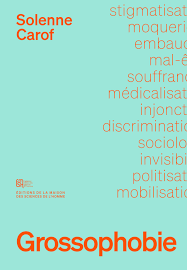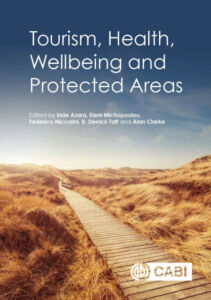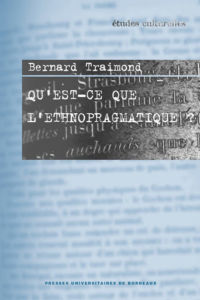Project reports
- Visible and invisible, the paradox of the fat body.

Rouvarel M. (2023). Visible et invisible, le paradoxe du corps gros. Book review: Grossophobie, sociologie d'une discrimination invisible, Solenne Carof (2021), Édition de la Maison des sciences de l'homme, (272 pages). Ethnologie française, 2023-1, pp 137-139.
-
When travel becomes pathological... Mad travellers

Review of When travel becomes pathological... Mad travelers
Ian Hacking, Les fous voyageurs, Paris, Seuil, coll. "Les empêcheurs de penser en rond", 2002, 391 p. Nathalie Le Roux - TEOROS magazine
-
Tourism, Health, Wellbeing and Protected Areas

Proceedings of Tourism, Health, Wellbeing and Protected Areas
Iride Azara, Elini Michopoulou, Federico Niccolini, B. Derrick Taff and Alan Clarke (eds.), Tourism, Health, Wellbeing and Protected Areas, Croydon, CABI, 2018, 225 pp.
Eric Perera - TEOROS magazine
-
Anthropological insights from the East

Review of "Exoticism and intelligibility: Itineraries of the Orient".
François Pouillon, Presses Universitaires de Bordeaux, 2017, 258 pages
Eric Perera and Yann Beldame La Nouvelle Quinzaine Littéraire, n°1191 (April 01, 2018) Anthropological insights from the East-
What is ethnopragmatics for?

Review of "What is ethnopragmatics?"
PU de Bordeaux
Bernard Traimond
Eric Perera and Yann Beldame La Nouvelle Quinzaine Littéraire, n°1174 (June 01, 2017) What is ethnopragmatics for?